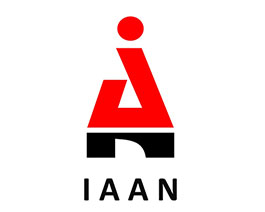
Is Journalism the Best Career Option After 10+2?
Choosing a career option after completing 10+2 examination can be a challenging decision. Journalism is one of the most dynamic and evolving career choices in today’s world. With the increasing demand for news, media, and digital content, journalism has become a lucrative field for students after successfully completing their 10+2 (12th) education. If you have a passion for Script/ News writing, investigating, and reporting, pursuing a Bachelor’s Degree in Journalism and Mass Communication (BJMC) can be an excellent career option after 12th.
Journalism Courses in Delhi – An Overview

Journalism is a vast field that encompasses covers forms of media, including print media, digital media, and electronic media. A journalism course equips students with the skills required for news reporting, writing, editing, and presenting news in different media formats.
In Delhi, several reputed journalism colleges and universities offer Journalism Courses in Delhi to help students build a strong foundation in this field. The courses cover essential aspects such as mass communication, media ethics, news writing, public relations, and digital journalism.
Why Choose Journalism as a Career?
Journalism is more than just reporting news; it plays a crucial role in shaping public opinion, uncovering truth, and bringing awareness to societal issues. Here are some reasons why students should consider journalism as a career option:
- Global Career Prospects – Journalism is a globally recognized profession with job opportunities in national and international media houses.
- Exciting and Challenging – Journalism offers an adventurous and intellectually stimulating career.
- Opportunities in Multiple Fields – A journalism degree opens doors to various media sectors, including TV, radio, print, and digital media.
- Influence and Impact – Journalists have the power to influence and educate society.
- Creativity and Expression – The field allows creative minds to express ideas through writing, photography, and video production.
Eligibility Criteria for Journalism Courses in Delhi

To pursue Journalism Courses College in Delhi, students must meet specific eligibility requirements. The general eligibility criteria for journalism courses include:
- Academic Qualification: For BJMC Course, candidates must have completed 10+2 from a recognized board. For postgraduate degree and diploma programs, candidates must have a bachelor’s degree from a recognized university.
- Stream: Students from any stream (Arts, Science, or Commerce) can apply.
- CUET (Common University Entrance Test): students who have applied for CUET (Common University Entrance Test) exams can also apply for the BJMC (Bachelor of Journalism and Mass Communication) course.
Admission Process for Journalism Course in Delhi
The admission process for journalism courses in Delhi includes:
1. Entrance Exams
Many top journalism colleges conduct entrance exams to assess students’ knowledge, writing skills, and aptitude. Some popular entrance exams include:
- IPU CET (Indraprastha University Common Entrance Test)
- DUET (Delhi University Entrance Test)
- JMI Entrance Test (Jamia Millia Islamia University)
2. Merit-Based Admission
Some colleges offer direct admission based on 10+2 marks. Candidates with high academic scores may be selected without an entrance exam.
3. Interview and Group Discussion
After clearing the entrance exam, students may be required to appear for a personal interview or group discussion to assess their communication and analytical skills.
4. Final Selection and Admission
Based on the overall performance, colleges release merit lists, and selected candidates proceed with document verification and fee payment.
Top Journalism Colleges in Delhi
Delhi is home to some of the best institutions offering Journalism Courses in Delhi. Here are some reputed journalism colleges in Delhi:
1. Indian Institute of Mass Communication (IIMC)
- One of India’s top media institutes.
- Offers Postgraduate Diploma courses in Journalism, Radio & TV, and Advertising & PR.
- Entrance-based admission.
2. IAAN School of Mass Communication
- Offers BAMC, MAMC and PG Diploma programs.
- Focuses on digital media and practical exposure.
- Industry-oriented curriculum.
3. Delhi University (DU)
- Offers BA (Hons) in Journalism and Mass Communication.
- Admission through DUET entrance exam or CUET.
- Reputed for excellent faculty and placement opportunities.
4. Jamia Millia Islamia (JMI)
- Offers undergraduate and postgraduate journalism programs.
- Entrance-based admission.
- Strong media industry connections.
5. Guru Gobind Singh Indraprastha University (GGSIPU)
- Offers BJMC and MA in Mass Communication.
- Admission through IPU CET.
- Provides excellent infrastructure and practical training.
Career Scope After Journalism Courses

After completing a journalism course, students can explore various career opportunities in print media, electronic media, and digital journalism. Some popular job roles include:
- News Reporter – Reporting current events for newspapers, TV, and digital platforms.
- Editor – Reviewing and editing news articles for accuracy and clarity.
- News Anchor – Presenting news on television channels.
- Photojournalist – Capturing news through photography.
- Content Writer – Writing articles, blogs, and social media content.
- Public Relations Officer – Managing communication between organizations and the public.
- Radio Jockey (RJ) – Hosting radio shows and engaging with the audience.
- Digital Journalist – Creating content for online news portals and social media.
With the rise of digital media, journalists also have opportunities in freelancing, blogging, podcasting, and YouTube content creation.
Placement Assistance and Salary Expectations
Top Journalism Colleges in Delhi offer placement assistance to students by organizing job fairs, internships, and industry interactions. Some leading media houses that recruit journalism graduates include:
- The Times of India
- Hindustan Times
- NDTV
- Zee News
- CNN-News18
- The Indian Express
Salary Expectations
The salary of a journalism graduate depends on experience, skills, and job role.
- Entry-level journalists earn around ₹3-5 LPA.
- Experienced journalists can earn ₹8-12 LPA.
- News anchors and senior editors can earn ₹15 LPA or more.
Freelancers and independent journalists can earn through blogging, YouTube, and collaborations.
Conclusion: Is Journalism a Good Career After 10+2?
Journalism is an exciting and rewarding career option for students passionate about media, storytelling, and communication. With numerous Journalism Courses in Delhi, aspiring journalists have access to quality education and training in the field.
If you are interested in uncovering the truth, sharing impactful stories, and shaping public opinion, a journalism career is the right choice for you. Explore the best Journalism Colleges in Delhi, apply for a course, and start your journey toward a successful career in media and communication.
By choosing a reputable Journalism Courses College in Delhi, students can gain theoretical knowledge, practical exposure, and industry connections that will help them thrive in the ever-evolving world of journalism.




